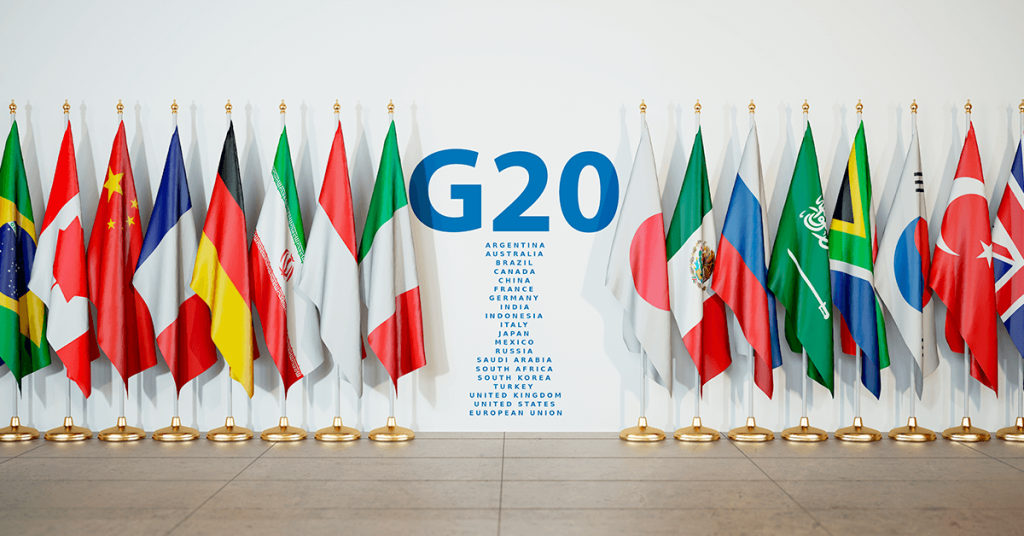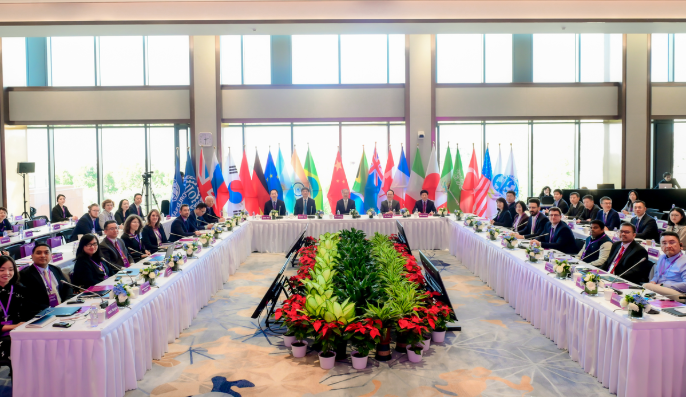Rio de Janeiro, Brazil – The upcoming G20 Summit in Rio de Janeiro is poised to take a significant step forward in promoting sustainable development and fostering global entrepreneurship. According to Gao Jian, Director of the Entrepreneurship Research Center on G20 Economies at Tsinghua University, the summit will help bridge divides between developed and developing nations, paving the way for a global consensus on tackling the world’s most pressing challenges—particularly the green and digital transitions essential for sustainable growth.
In a statement regarding the Summit, Gao emphasized the unique role of the G20, which brings together a diverse group of countries from across the globe. He explained that the G20 provides an opportunity to address issues that impact economies in both the developed and developing world, ensuring a broad representation of regional concerns. “The G20 is a broad international mechanism that includes both developing and developed countries, ensuring representation from various regions and continents. Each participant plays a unique role,” said Gao, underscoring the critical role of this annual summit in shaping global economic development.
“Building a Just World and a Sustainable Planet” – The Theme of This Year’s Summit
This year’s G20 theme—“Building a Just World and a Sustainable Planet”—captures the urgency of aligning economic development with environmental sustainability. Gao notes that while every economy aims to create more employment opportunities, enhance its position in global trade, and prevent falling behind, these goals must not come at the cost of sustainability. The challenge, he argues, lies in addressing employment issues alongside the dual imperatives of the green transition (reducing carbon emissions) and the digital transition (embracing new technologies).
“Every economy is striving to secure its place in the global economy,” Gao remarked, “but this must not come at the expense of long-term sustainability. That means finding a balance between growth, employment, and green and digital innovation.” This approach, according to Gao, will require substantial changes in business models, technological updates, and a shift towards more eco-friendly and digitally driven industries.
The Role of Innovative Entrepreneurs in Achieving Sustainability

One of the central ideas highlighted by Gao is the vital role that innovative entrepreneurs will play in fostering the solutions necessary for a sustainable future. As economies grapple with issues like climate change, energy inefficiency, and digital disruption, the private sector—especially entrepreneurial businesses—will be at the forefront of finding scalable solutions.
Gao pointed to China’s electric vehicle (EV) industry as a prime example of how entrepreneurial companies can drive significant change. “China’s globally leading electric vehicle industry, largely driven by startups, exemplifies how innovation can meet the demands of both the green transition and digital innovation,” he said. The electric vehicle sector, which has seen rapid development in China, highlights how new technologies and innovative companies can help transition economies away from fossil fuels while creating new business opportunities and jobs.
According to Gao, entrepreneurial ecosystems are essential for technological advancements that will drive the green and digital transitions needed to tackle global challenges. “In order to achieve sustainability, companies need to update technologies, reduce carbon emissions, and foster new innovations that address today’s challenges,” he said.
Fostering Global Cooperation for Sustainable Growth
At the heart of this vision is the idea of global cooperation. Gao stresses that no single economy or nation can solve the complex challenges of sustainability on its own. “Only through global cooperation and joint efforts can we achieve the scale of change needed to ensure sustainable development,” he said. The G20 provides a platform where countries with diverse interests can come together to align their efforts and create a collective, actionable agenda for sustainable business practices and economic development.
This cooperative approach is vital not only in the context of climate change and sustainable development but also in fostering cross-border entrepreneurship and innovation. The G20, as a global forum, can help establish frameworks for international collaboration that enable entrepreneurs from different countries to share knowledge, resources, and best practices in green and digital technologies.
The Role of the Entrepreneurship Research Center on G20 Economies
The Entrepreneurship Research Center on G20 Economies, which was established in 2017 at Tsinghua University, plays an important role in shaping these discussions. The Center’s mission is to promote the implementation of G20 leaders’ consensus, particularly the 2016 Hangzhou Summit‘s emphasis on fostering entrepreneurship as a key driver of global economic growth. The Center’s research focuses on understanding the intersection of entrepreneurship, innovation, and sustainability, aiming to inform policies that will enable businesses to thrive in a more sustainable global economy.
By providing valuable insights and research, the Center helps to shape policies that encourage entrepreneurial innovation in the G20 economies. Its work supports the notion that sustainability and entrepreneurship are not opposing goals but can be pursued concurrently to create a future where businesses can grow while contributing positively to the planet.
Conclusion: A Pivotal Moment for Global Business
As the G20 Summit in Rio de Janeiro approaches, it is clear that sustainability and entrepreneurship will be at the center of the global economic agenda. With countries working to balance economic growth, employment, and environmental sustainability, the role of innovative entrepreneurs will be more crucial than ever in providing the solutions needed to tackle the green and digital transitions.
As Gao Jian highlighted, achieving sustainability is not a task for any single nation alone. Instead, it requires global cooperation, with entrepreneurial businesses leading the way by harnessing new technologies and innovations that can both improve business practices and benefit the planet. The upcoming G20 Summit will provide an important opportunity for countries to align their efforts and build a more sustainable, just, and innovative global economy.
Sources:
- China Daily, “G20 Action for Business Promotes Sustainability,” (2024).
- Tsinghua University Entrepreneurship Research Center on G20 Economies
- G20 Summit Official Press Releases (2024).



